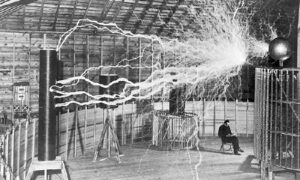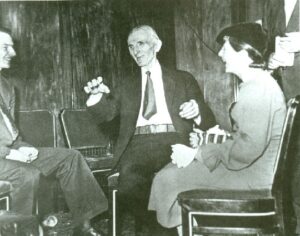Penniless Geniuses
Vocabulary
| icon | wide (2) | generation |
| receive | lifetime | brilliance (2) |
| illness | struggle | recognition (2) |
| mental | field (2) | sell/sold/sold |
| poverty | respective | throughout |
| yet | insecurity | accomplishment |
| area (3) | translate | phenomenon |
| iconic | reward (2) | harness (2) |
| regard | obscurity | great/greater/greatest |
| support | countless | relative (2) |
| limited | significant | deal/dealt/dealt (3) |
| realm | reclusive | poem/poetry |
| science | lifetime | handful (2) |
| invent | sunflower | achievement |
| AC | compose | contribution |
| DC | wireless | publish (2) |
| motor | testament | seek/sought/sought |
| create | shield (2) | impoverished |
| anti | obsolete | make/made/made |
| penury | projectile | nevertheless |
| genius | countless | forget/forgot/forgotten |
| legacy | reminder | accompany (2) |
| inspire | in spite of | pioneer (2) |



One of the most names in modern art is Vincent van Gogh. The Dutch painter created some of the most iconic paintings, including “Starry Night” and “Sunflowers.”
Despite his artistic brilliance, van Gogh received little recognition and sold only one painting in his lifetime. He struggled with mental illness and lived in poverty for much of his life. At the age of 37 he took his own life.
Van Gogh was but one of many examples throughout history, men and women who made great accomplishments in their respective fields — and yet lived and died in poverty or struggled with monetary insecurity.
This phenomenon is a testament that creativity and success do not always translate to financial rewards.
The German composer Johann Sebastian Bach is widely regarded as one of the greatest composers in history. However, he lived in relative obscurity during his lifetime and struggled to support his large family. He died in poverty at the age of 65.
Similarly, in the field of literature, Emily Dickinson is now considered one of the most important poets America has produced. But only a handful of her poems were published during her lifetime. She lived a reclusive life and died at the age of 55, in poverty.
Unrewared achievements is not limited to arts and letters, but “pragmatic” fields as well. Nikola Tesla, a Serbian-born American inventor, was a pioneer in the field of electrical engineering and made significant contributions to the development of the AC motor and wireless communication.
Tesla also sough to harness “free, unlimited energy” and create an “anti-projectile shield” that would have made war obsolete. Nevertheless, he died alone and impoverished in a New York City hotel room at the age of 86.
These individuals, along with countless others, are a reminder that financial success does not always accompany creative genius or achievement. In spite of their struggles, their legacies live on and continue to inspire future generations of artists, musicians, writers, and inventors.



Questions
Rembrandt van Rijn. The main idea or theme of this text was to recognize and praise great artists, writers and scientists from history. Is this right or wrong?
Leonardo da Vinci. Vincent van Gogh was as photographer who like to take pictures of sports cars and the mansions of celebrities. True or false?
Pablo Picasso. Did van Gogh live in an opulent home in Beverly Hills, and was married four times and enjoyed parties and gatherings?
Wolfgang Amadeus Mozart. Johann Sebastian Bach won many music awards and lived in a palace to entertain a king and his royal court. Do you agree?
Ludwig van Beethoven. Was Bach single and alone?
Franz Schubert. In the 1800s, did bookstores feature books by Emily Dickinson? Was she married with numerous children and grandchildren?
Homer. Only artists and writers live obscure lives; scientists and engineers always receive recognition and compensation. Is this correct or incorrect?
Jane Austen. Who are some great artists, writers and scientists that you admire?
Leo Tolstoy. Who are some great artists, writers and scientists from you town, city, country or region?
Archimedes. Why do many great achievers remained unknown or forgotten?
Benjamin Franklin. I would like to become a great artist, writer or inventor. Yes or no? Would you like to be rich and famous?
Thomas Edison. What might happen in the future?
Steve Jobs and Steve Wozniak. What can or should governments, businesses and society do?
